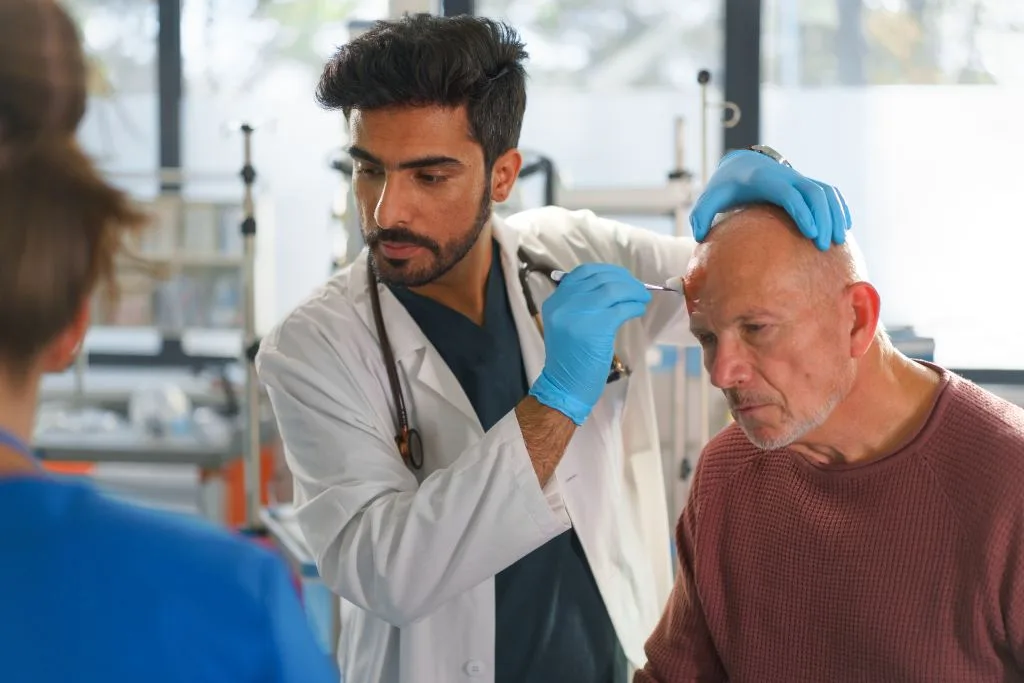A car accident can take a toll on both your body and mind, leaving you uncertain about how long it will take to feel like yourself again. Recovery isn’t one-size-fits-all—it can take weeks, months, or even longer, depending on the severity of injuries and individual factors. Understanding what influences your healing process can help you set realistic expectations, reduce stress, and take proactive steps—such as incorporating chiropractic care after an accident—to support a smoother recovery.
How Long Will It Take To Recover From A Car Accident?
Recovery times following a car accident can vary widely, as each individual’s experience is unique. Several key factors play a role in determining how long it may take for you to heal:
- Severity of Injuries: Minor injuries, such as bruises or mild whiplash, might heal within a few days to several weeks. In contrast, more severe injuries, like fractures or significant soft tissue damage, could require months or even longer for full recovery.
- Individual Health Conditions: Your overall health and age can significantly impact your healing process. Younger individuals or those in good health may recover more quickly than older adults or those with pre-existing health conditions.
- Timeliness of Medical Intervention: Seeking prompt medical attention after an accident is crucial. Early diagnosis and treatment can prevent complications and promote a faster healing process.
Common Car Accident Injuries and Their Recovery Times
Understanding the types of injuries commonly associated with car accidents and their typical recovery times can provide clarity and help set realistic expectations:
Whiplash and Neck Injuries
Whiplash occurs when the neck is forcefully thrown back and forth during a collision, straining the muscles and ligaments. This can lead to stiffness, headaches, and reduced mobility, making even simple movements uncomfortable.
Mild whiplash may improve within 2 to 4 weeks with rest, ice, and physical therapy. More moderate cases can take 6 to 12 weeks, while severe whiplash—especially if nerve damage or chronic pain develops—may require 3 to 6 months of treatment, including chiropractic care or rehabilitation therapy.
Back and Spinal Injuries
Car accidents can cause a range of back injuries, from mild muscle strains to more serious conditions like herniated discs or spinal misalignments. These injuries often result in persistent pain, limited movement, and nerve-related symptoms such as tingling or numbness.
Mild muscle strains can heal within 2 to 4 weeks, while moderate injuries such as ligament damage may take 6 to 12 weeks. More severe spinal injuries, including herniated discs or fractures, can require 3 to 6 months of recovery, and in cases involving surgery, rehabilitation may take a year or longer.
Head Injuries and Concussions
Traumatic brain injuries, including concussions, are common after car accidents due to sudden impact forces. Symptoms like dizziness, headaches, memory problems, and sensitivity to light can appear immediately or develop over time.
Mild concussions typically resolve within 7 to 14 days, though full recovery may take up to a month. More severe concussions can require 1 to 3 months of cognitive rest and therapy. Traumatic brain injuries (TBIs) with lasting neurological symptoms may take 6 months to a year or more, depending on the severity and treatment plan.
Emotional and Psychological Health
The emotional effects of a car accident can be just as significant as the physical injuries. Many individuals experience anxiety, depression, or post-traumatic stress disorder (PTSD), which can make it difficult to drive again, return to daily routines, or feel at ease.
Emotional recovery varies widely—some people feel better within a few weeks to 3 months, while others require 6 months to a year or longer if symptoms persist. Therapy, counseling, and support groups can play a crucial role in the healing process, and those with severe PTSD may need ongoing treatment for several years.
Steps You Can Take to Speed Up Your Recovery
Taking proactive steps can significantly influence your recovery journey. Here’s how you can support your healing process:
1. Seek Immediate Medical Attention
Even if you feel fine immediately after the accident, it’s crucial to undergo a comprehensive medical evaluation. Some injuries may not manifest symptoms right away, and early detection can prevent complications down the line.
2. Follow Prescribed Treatment Plans
Adhering to your healthcare provider’s recommendations is essential. This includes taking medications as directed, attending all physical therapy sessions, and scheduling necessary follow-up appointments. Consistency in following your treatment plan can lead to more effective and quicker recovery outcomes.
3. Incorporate Rest and Gradual Activity
Allow your body the time it needs to heal by ensuring adequate rest. As you feel better, gradually reintroduce activities to rebuild strength and flexibility. Gentle exercises such as light stretching, short, slow-paced walks, and light household tasks can be beneficial. Always listen to your body and avoid pushing yourself too hard, as overexertion can hinder the healing process.
4. Maintain a Healthy Lifestyle
Supporting your body’s natural healing processes through a healthy lifestyle can make a significant difference. This includes:
- Balanced Nutrition: A diet rich in fruits, vegetables, lean proteins, and whole grains provides essential nutrients that aid in tissue repair and overall recovery.
- Hydration: Drinking plenty of water helps maintain bodily functions and supports the healing process. Aim for at least six cups of water daily to stay adequately hydrated.
- Adequate Sleep: Quality sleep is crucial for healing, allowing your body to repair and rejuvenate. Establish a regular sleep schedule and create a restful environment to promote better sleep quality.
What Can You Do If Your Recovery Is Taking Longer Than Expected?
It’s understandable to feel frustrated and disheartened when your recovery isn’t progressing as quickly as you’d hoped. Healing is a personal journey, and sometimes it takes longer than anticipated. Here are some steps you can consider:
- Consult a Specialist: If your progress has stalled, seeking a second opinion from a healthcare professional specializing in car accident injuries can provide new insights and potential treatment options.
- Engage in Support Groups: Connecting with others who have experienced similar challenges can provide emotional support and practical advice, helping you navigate your recovery journey.
- Reevaluate Your Treatment Plan: Discuss with your healthcare provider the possibility of adjusting your current treatment regimen to better align with your body’s needs.
- Prioritize Mental Health: Persistent physical discomfort can affect your emotional well-being. Consulting a mental health professional can offer strategies to cope with stress and anxiety related to prolonged recovery.
- Explore Alternative Therapies: Treatments such as massage therapy, acupuncture, or chiropractic therapy can complement traditional medical approaches and may relieve persistent symptoms after a car accident.
How Chiropractic Care Helps After a Car Accident

Chiropractic care plays a significant role in addressing musculoskeletal injuries commonly sustained in car accidents. Chiropractors diagnose and treat spinal misalignments and soft tissue injuries through non-invasive techniques. By performing manual adjustments, they can realign the spine, reduce nerve pressure, and promote natural healing. This approach alleviates pain and enhances mobility and function, facilitating a more efficient recovery process. Incorporating chiropractic care into your treatment plan can be a valuable step toward restoring your health and well-being.
READ: How Long Do I Need Chiropractic Treatment After a Car Accident?
Affordable Chiropractic Killeen –Your Partner in Faster Recovery
Recovering from a car accident is a unique journey influenced by various factors, including the severity of injuries and individual health. While timelines can vary, proactive steps and professional care are essential for a successful recovery.
At Affordable Chiropractic Killeen, we specialize in providing personalized chiropractic care to support your healing process after a car accident. Our experienced team offers services such as spinal decompression, active rehabilitation, and on-site X-rays to address your specific needs. Don’t navigate your recovery process alone. Contact us today to schedule an appointment or learn more about how we can assist you on your path to wellness.

